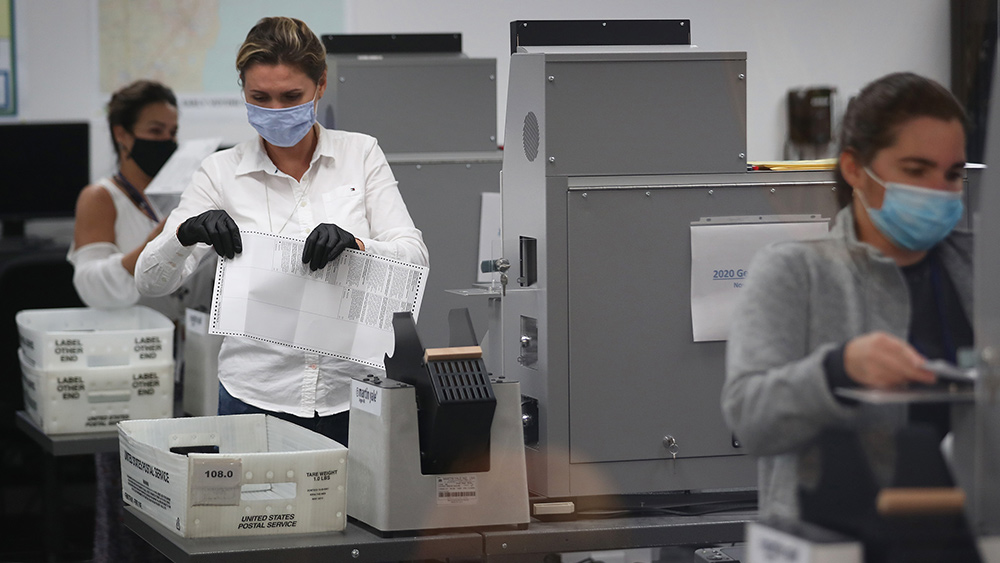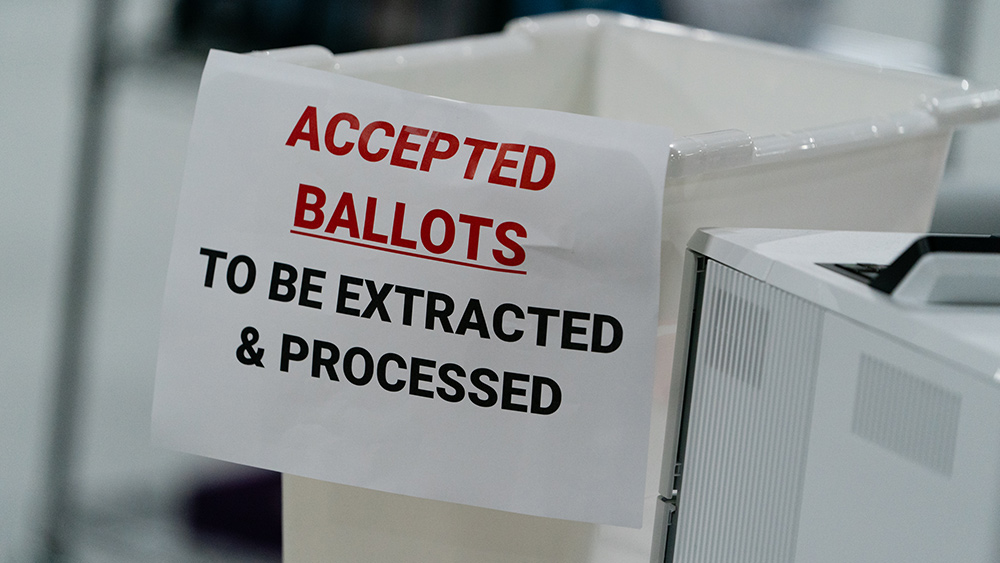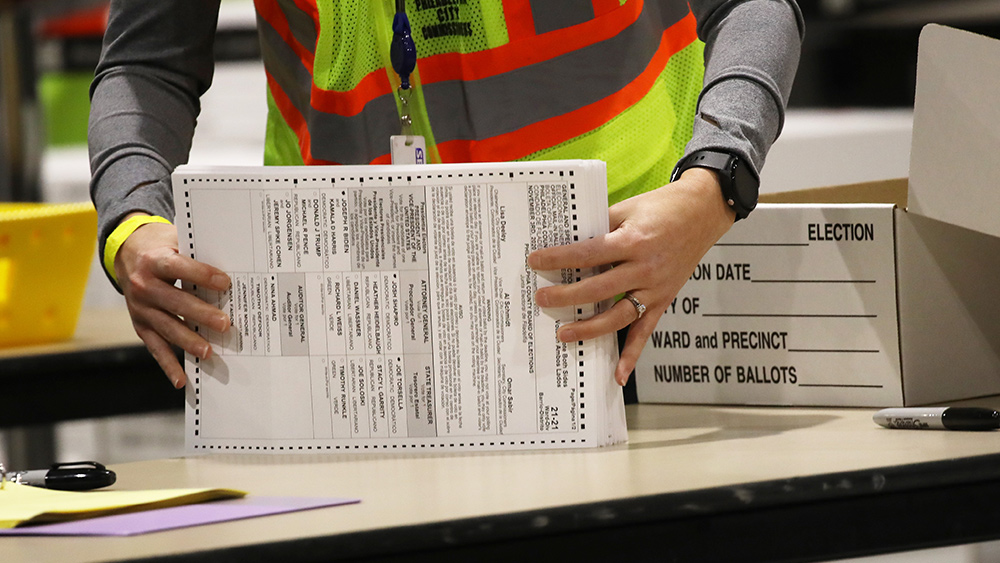Washington state loses hundreds of millions to Nigerian unemployment claims fraud
05/22/2020 / By Franz Walker

Officials in the state of Washington have acknowledged the loss of “hundreds of millions of dollars” to an international scheme that hammered the state’s unemployment insurance system. The attack, which is thought to have originated in Nigeria, could mean even longer delays for thousands of unemployed workers still waiting for legitimate benefits.
The staggering losses were disclosed by Washington state Employment Security Department (ESD) Commissioner Suzi LeVine during a news conference Thursday afternoon. LeVine declined to specify exactly how much money was stolen during the scam. She conceded, however, that the amount was “orders of magnitude above the $1.6 million that the ESD reported as having lost to fraud in April.
Fraud comes and unemployment claims went down in other states
According to LeVine, state and law enforcement officials were working to recover as much of the money as possible, though she declined to mention how much had been recovered so far. She also said that the ESD had taken “a number of steps” to prevent further fraudulent claims from being filed or paid, but did not specify the steps, to avoid tipping off criminals.
“We do have definitive proof that the countermeasures we have put in place are working,” LeVine said. “We have successfully prevented hundreds of millions of additional dollars from going out to these criminals and prevented thousands of fraudulent claims from being filed.”
LeVine’s disclosure, which came after state officials initially refused to discuss the scale of the fraud, helped explain the unusual surge in new unemployment claims filed in Washington state last week. For the week ending May 16, the ESD received 138,733 initial unemployment insurance claims, representing a 26.8 percent increase over the previous week and one of the biggest weekly surges since the beginning of the coronavirus pandemic. (Related: Coronavirus pushes unemployment to highest levels since the Great Depression.)
The surge in claims came as the number of initial claims for unemployment insurance nationwide fell 9.2 percent, to 2.4 million, according to data released earlier in the day by the Department of Labor.
Thanks to the sudden increase in claims, Washington became the state with the highest percentage of its civilian labor force filing unemployment claims — at 30.8 percent according to an analysis by nonpartisan Washington, D.C., think tank the Tax Foundation. The next highest state, Nevada, reported claims from 24.5 percent of its workforce.
The disclosures also raised new questions about what, if anything, the ESD could have done to detect and protect its system from the attack.
Last week, the United States Secret Service had already issued an alert warning that Washington was the primary target of a “well-organized Nigerian fraud ring exploiting the COVID-19 crisis to commit large-scale fraud against state unemployment insurance programs.” The alert also noted that there was evidence of attacks on other states such as Florida, Massachusetts, North Carolina, Oklahoma, Rhode Island and Wyoming, warning of “potential losses in the hundreds of millions of dollars.”
Nigerian fraud ring implicated
Among the criminal groups involved in the attack is a Nigerian organization known as Scattered Canary, based on a report released this week by California-based cybersecurity firm Agari, who has been tracking the organization’s activities for some time now. According to the report, the group has been running various scams for over a decade now, working to steal Social Security payments, disaster relief funds and student aid, among others.
The Nigerian group likely used personal information about Washingtonians taken from previous consumer-data breaches to file bogus claims in the state’s unemployment system. These were then paid out alongside hundreds of thousands of legitimate ones.
“These crime rings are indiscriminate and very quick to jump on an opportunity,” said Armen Najarian, chief identity officer for Agari, in an interview.
ESD officials have claimed that the group targetted Washington because it was one of the first states to begin paying out new benefits available under the $2.2 trillion federal stimulus bill. While this legislation boosted benefits available under existing state unemployment insurance systems, it also gave state officials less time to verify new claims for those benefits.
According to ESD officials, the elimination of the so-called “waiting week” between the time a claim is filed and the time the benefit is paid meant that the agency wasn’t always able to get proper verification from employers about a claim before payment was made.
In addition, since federal benefits were technically available beginning in March, weeks before the state was able to upgrade its system to be able to pay them, many claimants had retroactive claims waiting to be paid in the ESD’s system.
At the federal level, the attack is being investigated by the inspector generals of the Social Security Administration and the Department of Labor; the United States Secret Service; and the Federal Bureau of Investigation, under the coordination of the office of U.S. Attorney Brian T. Moran in Seattle.
On Thursday, Moran said that federal officials worked with a “diligent financial institution” to stop “$120 million from being distributed to criminals,” and were “assisting in recovering millions of additional dollars, with assistance from scores of other banks and credit unions.”
Sources include:
Submit a correction >>
Tagged Under:
coronavirus, covid-19, cyber war, cyberwarfare, flu, fraud, hackers, hacking, incompetent, investigation, Nigeria, Nigerians, Police, stupid, theft, unemployment, unemployment claims, USA, virus, Washington state
This article may contain statements that reflect the opinion of the author
RECENT NEWS & ARTICLES
Trump.News is a fact-based public education website published by Trump News Features, LLC.
All content copyright © 2018 by Trump News Features, LLC.
Contact Us with Tips or Corrections
All trademarks, registered trademarks and servicemarks mentioned on this site are the property of their respective owners.





















